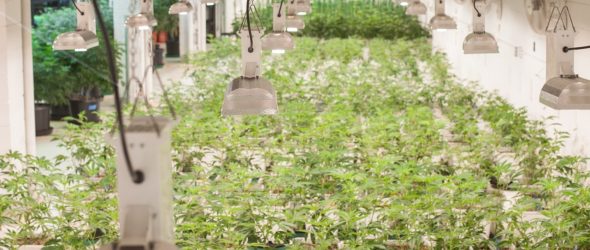Denver played host to officials from Michigan’s second-largest city over the week. Planners from Grand Rapids visited the Mile High City as part of a field trip to learn more about recreational marijuana, which is now legal in their state.
Grand Rapids officials toured various dispensaries and growing operations in Aurora and Denver to learn more about the cities’ zoning and land-use requirements for marijuana businesses; they also visited Denver’s only licensed business for social pot use and a marijuana testing lab. To drill down deeper, they also talked to Aurora and Denver city staffers about licensing and regulatory affairs.
“We saw a number of examples and interesting aspects,” says Kristin Turkleson, Grand Rapids’ acting city planning director. “Zoning, licensing, land use — this is all stuff we’re still working on.”
Michigan voters legalized recreational marijuana in 2018. Like Colorado’s Amendment 64, the Michigan measure allows local governments to ban or allow pot businesses. Grand Rapids opted in.
The town of around 200,000 seems fairly open to welcoming retail marijuana sales, the visiting Michigan contingent says. Over 70 percent of the voters in Grand Rapids who voted in the 2018 election were in favor of Michigan’s recreational marijuana initiative, and the city has already approved over twenty medical dispensaries. Still, Grand Rapids doesn’t yet have any medical marijuana grows or dispensaries open for business, and would-be recreational pot shops won’t be able to apply for licenses until April 20, 2020 (yes, that’s 4/20/20, which Turkleson and fellow planning director Landon Bartley swear happened by accident).
Michigan’s first recreational dispensaries opened on December 1 in Ann Arbor. Nearby Detroit has not approved recreational sales.
Touring a mix of municipalities in the Denver area helped the Grand Rapids planners know what to expect in their own town in the way of community reaction, tax revenue and other social impacts, they say. One unexpected community reaction? Confusion.
Tax revenue from legal pot sales has contributed well over $1 billion to Colorado since recreational sales began in 2014, with localities using their share to fund community centers, after-school programs and highway maintenance. Still, Colorado residents often are puzzled about where the revenue is going when Amendment 64 billed the measure as a boon for education. Other states and cities newer to the game have learned from that. “We have some people who really hope for a windfall,” Bartley says. “Based on the people we’ve talked to here, I don’t know if we should expect that.”


